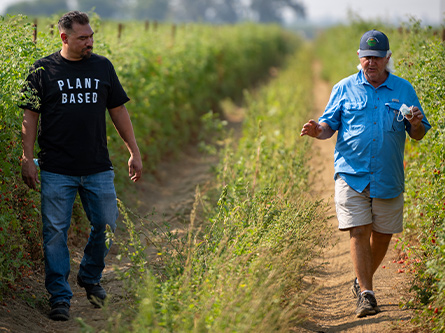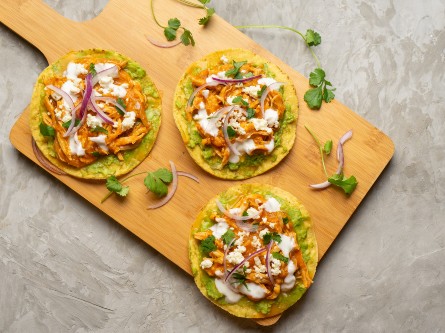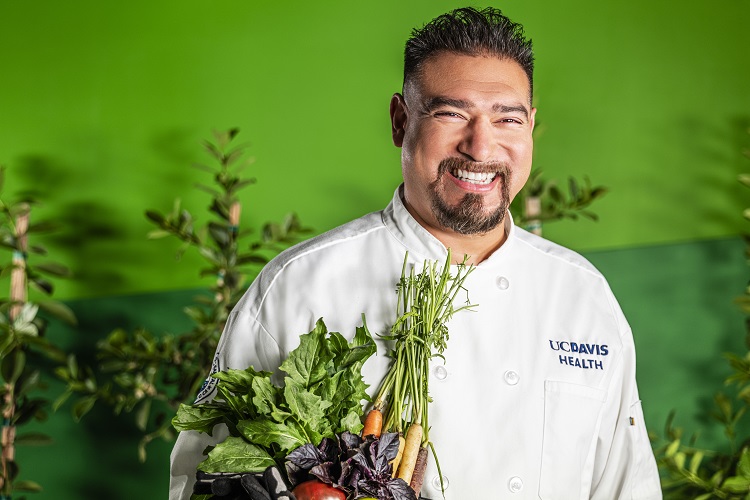
UC Davis Health’s Executive Chef Santana Diaz grew up in the small-town agriculture community of Yuba City, about 45 minutes north of Sacramento. There was always a focus on fresh produce and cooking side-by-side with his grandma and family.
“We weren’t part of an affluent community, but we always had access to fresh seasonal produce given the rooted connections my family had with the food labor community,” Diaz said. “We didn’t focus on or know much about highly processed foods and unnecessary added preservatives. A focus on fresh ingredients and real food is what actually set the stage moving forward for me.”
Keeping it simple and not always over-manipulating ingredients is what paved the way for a storied career in the food industry, and the farm-to-fork movement itself.
Farm-to-fork on a large scale
Before joining UC Davis Health, Diaz created the systems and recipes for the first food program in the sporting world of 90% sourced within a 150-mile radius as executive chef of Golden 1 Center (home of the Sacramento Kings). Diaz decided that working at large-scale institutions like arenas gave him the opportunity to assist farmers and ranchers with procurement forecasting while showcasing quality seasonal foods to the masses.
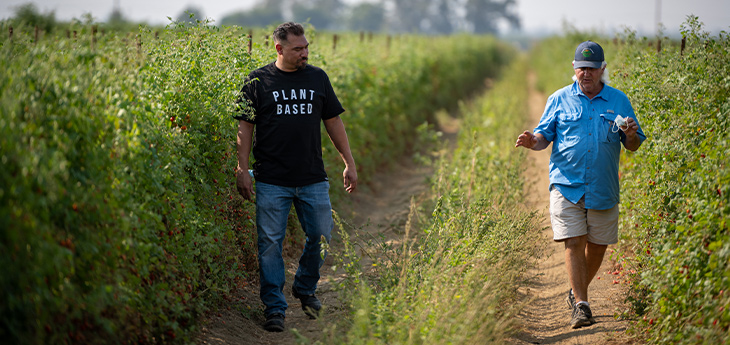
Diaz previously honed his skills at a variety of restaurants before taking on the logistical challenges of large-scale food production and sourcing for venues hosting up to 70,000 people per event.
When he got a call from UC Davis Health, his first thought was: Can a hospital really do a farm-to-fork program?
“I never anticipated putting my reputation on the line for hospital food until after speaking with UC Davis Health,” Diaz said. “It was clearly communicated from UC Davis Health executive leadership that they wanted to change that. We decided if we really wanted to make a difference, we’d need to look at the existing program, create and support a new plan, and build a new food procurement model.”
Local partnerships help everyone
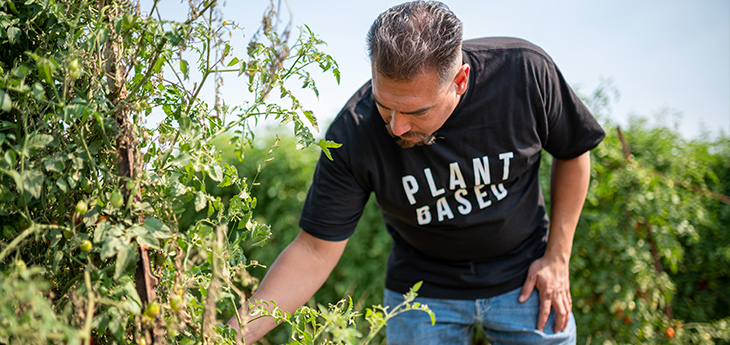
Throughout his career, Diaz built a roster of farmers and ranchers to help execute the large food programs. He’s gotten his feet muddy, scouted fields of produce, and seen where the production and processing of foods was taking place – always wanting to create a transparent food program for the guest.
“We’re incredibly fortunate that our medical center is located right here in the Sacramento Valley,” Diaz said. “We’re surrounded by farms and ranches, orchards and crops. Our goal is to source most of the entire food program from within 250 miles of our hospital campus, which is probably unheard of for a kitchen this size.”
By purchasing much of its food from sources almost within view of the hospital’s tallest tower, UC Davis Health can reduce delivery mileage and fuel consumption, lower its carbon footprint, and provide a healthy economic boost for locally produced food, according to Diaz.
“When we’re able to forecast with a local farmer, we provide not only a source transparent program, but also yield an important community benefit,” Diaz said. “We’re able to work with farmers and provide them with the produce volumes needed for the year so they can plan and plant ahead.”
Diaz hopes UC Davis Health‘s Food and Nutrition Services food operation becomes a model for the other health care facilities around the state and the country. Commitments to sustainable, healthy food practices that promote healing and long-term health is the ultimate goal.

